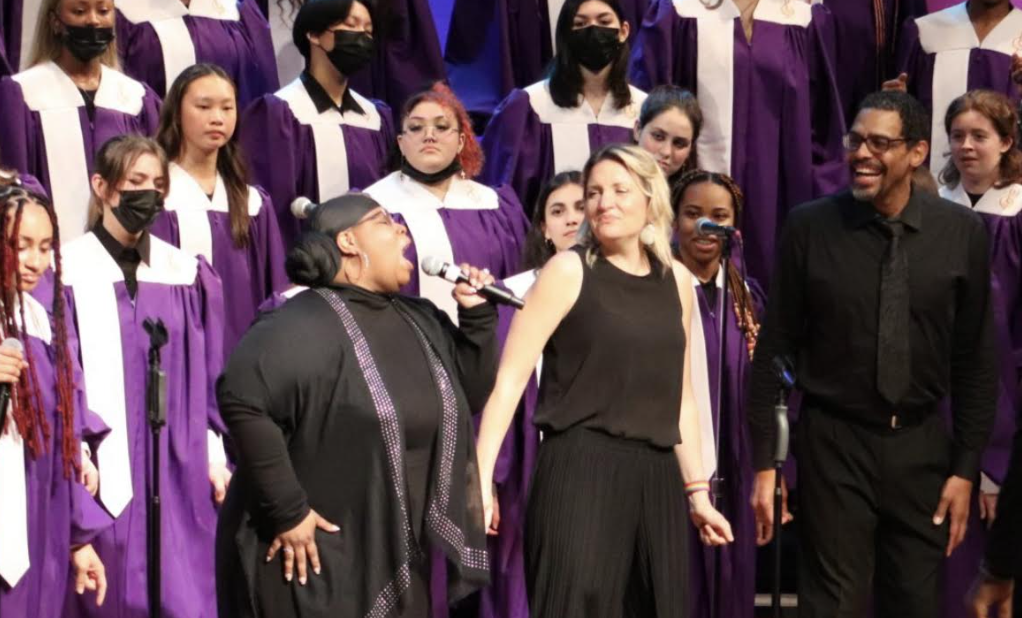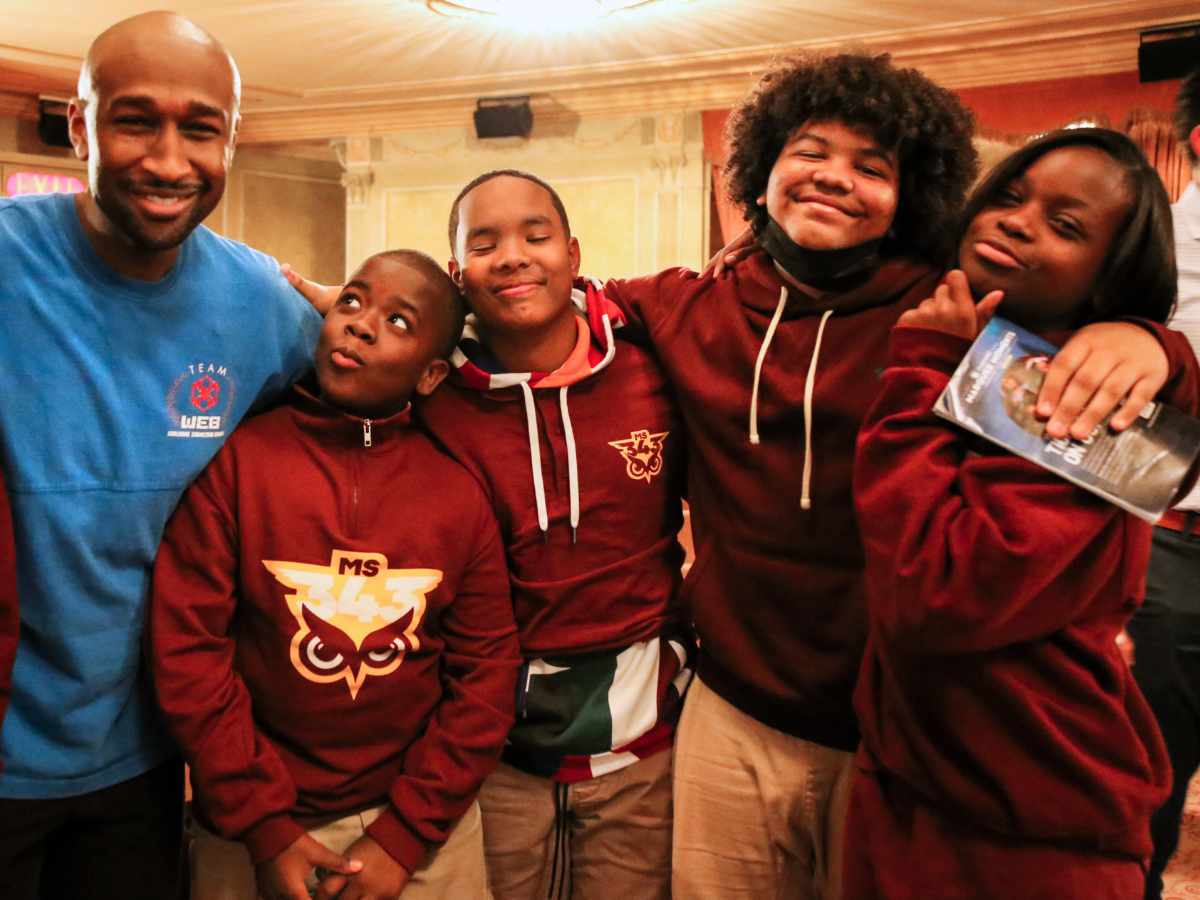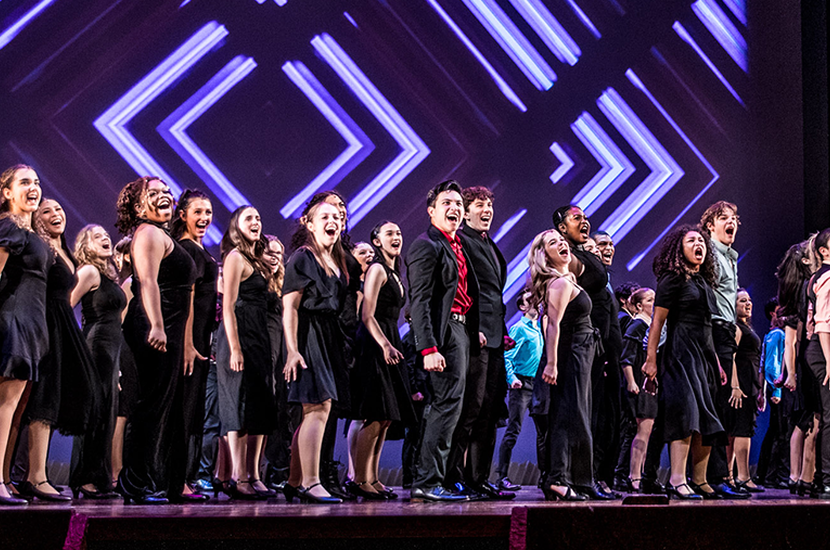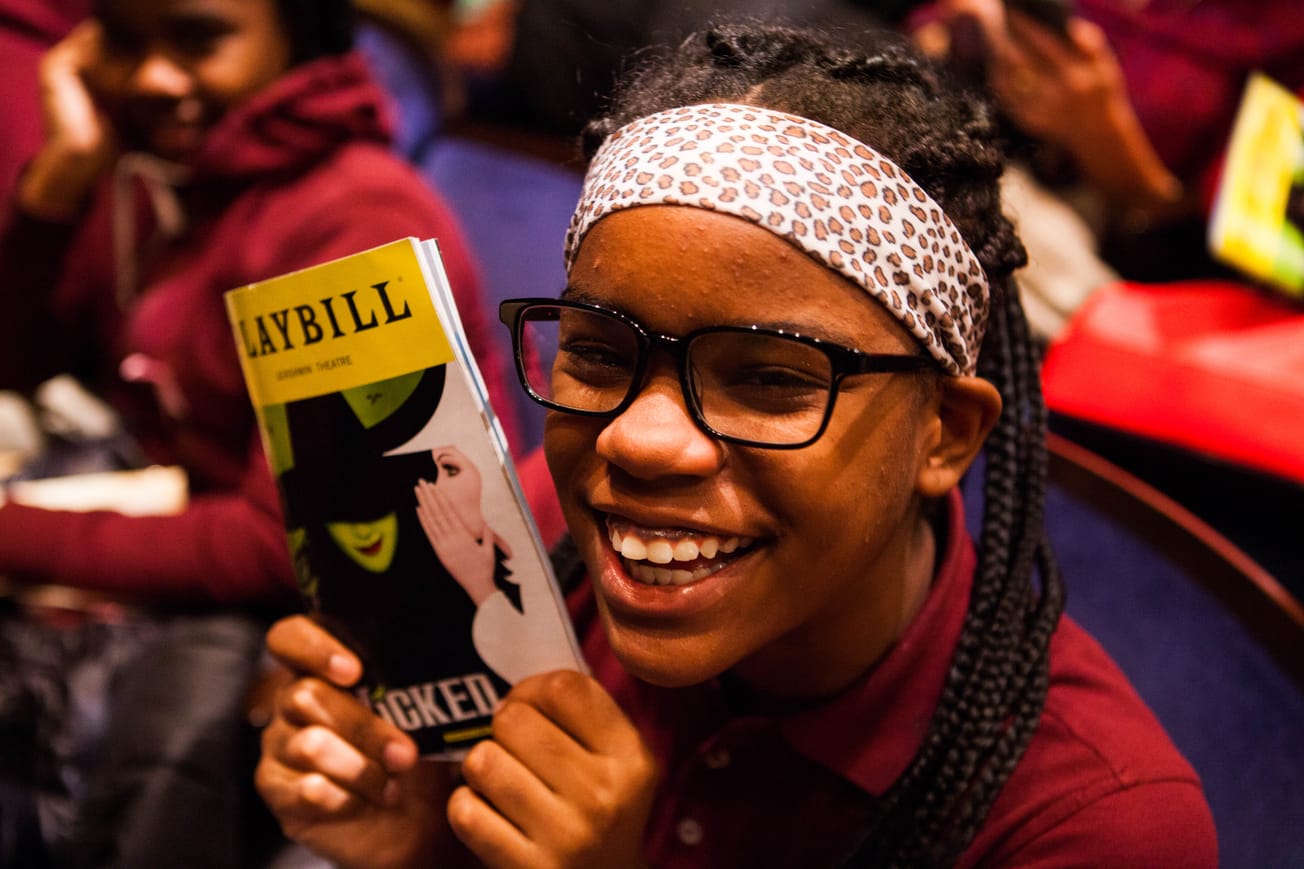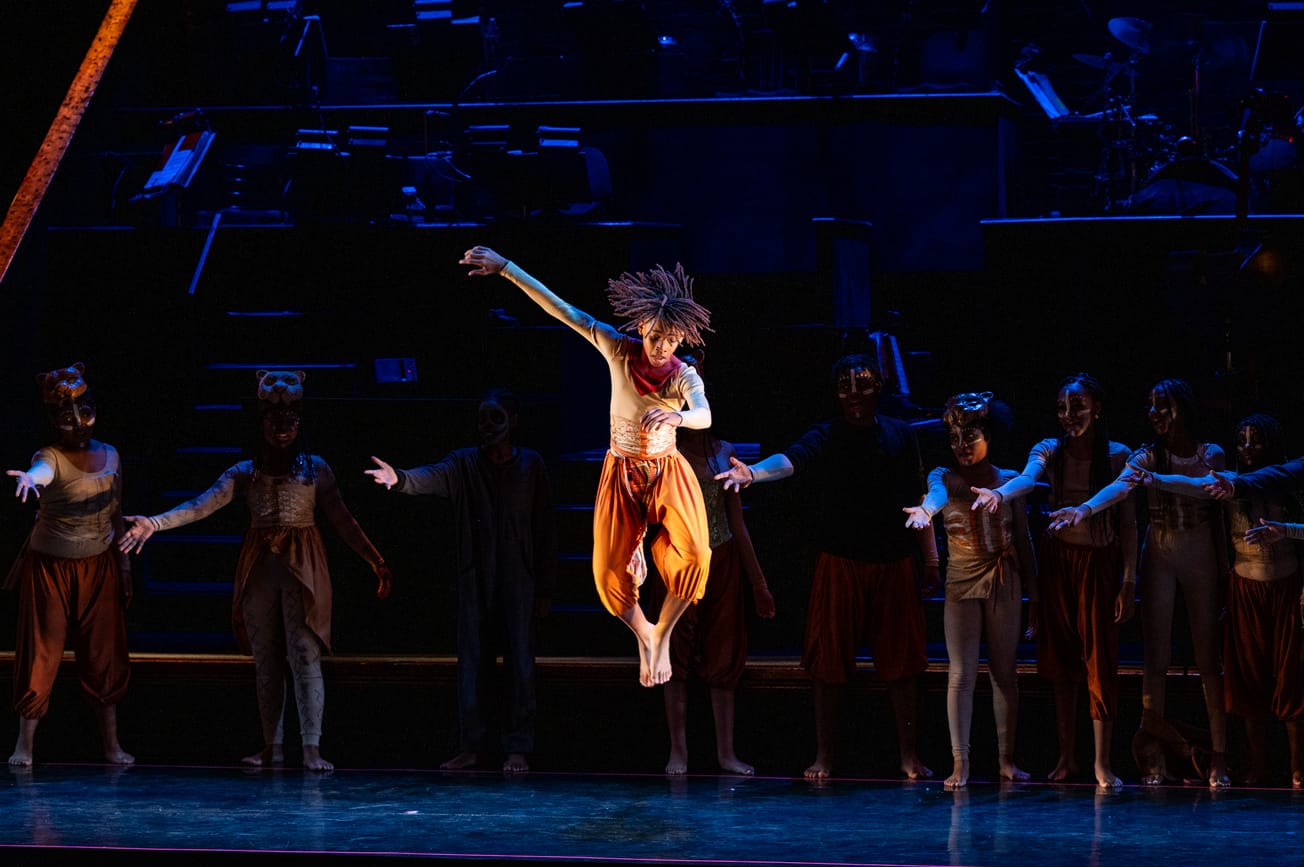Inspired sat down with Tasha Michelle Smith, the Director of Arts and Education at Broadway Inspirational Voices, an organization dedicated to nurturing and empowering communities through creative expression.
With a rich history of innovative nationwide arts programs, Broadway Inspirational Voices is comprised of actors and musicians from Broadway and Off-Broadway shows.
Inspired: Can you share a bit about your journey and how you got involved in the Broadway Inspirational Voices arts and education programs?
Tasha Michelle Smith: I found BIV when I moved to New York after working in the gospel music industry. I heard that there was a gospel choir made up of actors and actresses, and I thought that might be a great place to start. This was during a time when funding for the arts was being cut dramatically. And of course, as artists, we know how important it is for children to have access to the arts in school.
So, as a choir, we wanted to see what we could do to help. I was asked to be on the team responsible for identifying the schools that needed that extra support and seeing if we could offer them a class that the school didn't have to pay for. That’s where it all started for me!
Inspired: The impact you and the BIV team have made on NYC’s youth really can’t be understated. So, for the readers who may not be familiar with the organization, how does BIV use the power of music and the arts to uplift and empower students and communities that need it most?
Tasha Michelle Smith: We're here to support that shy kid in the corner who might be too nervous to stand in front of the class but knows how to express themselves through poetry. The arts give the opportunity for youth to continue to explore themselves.
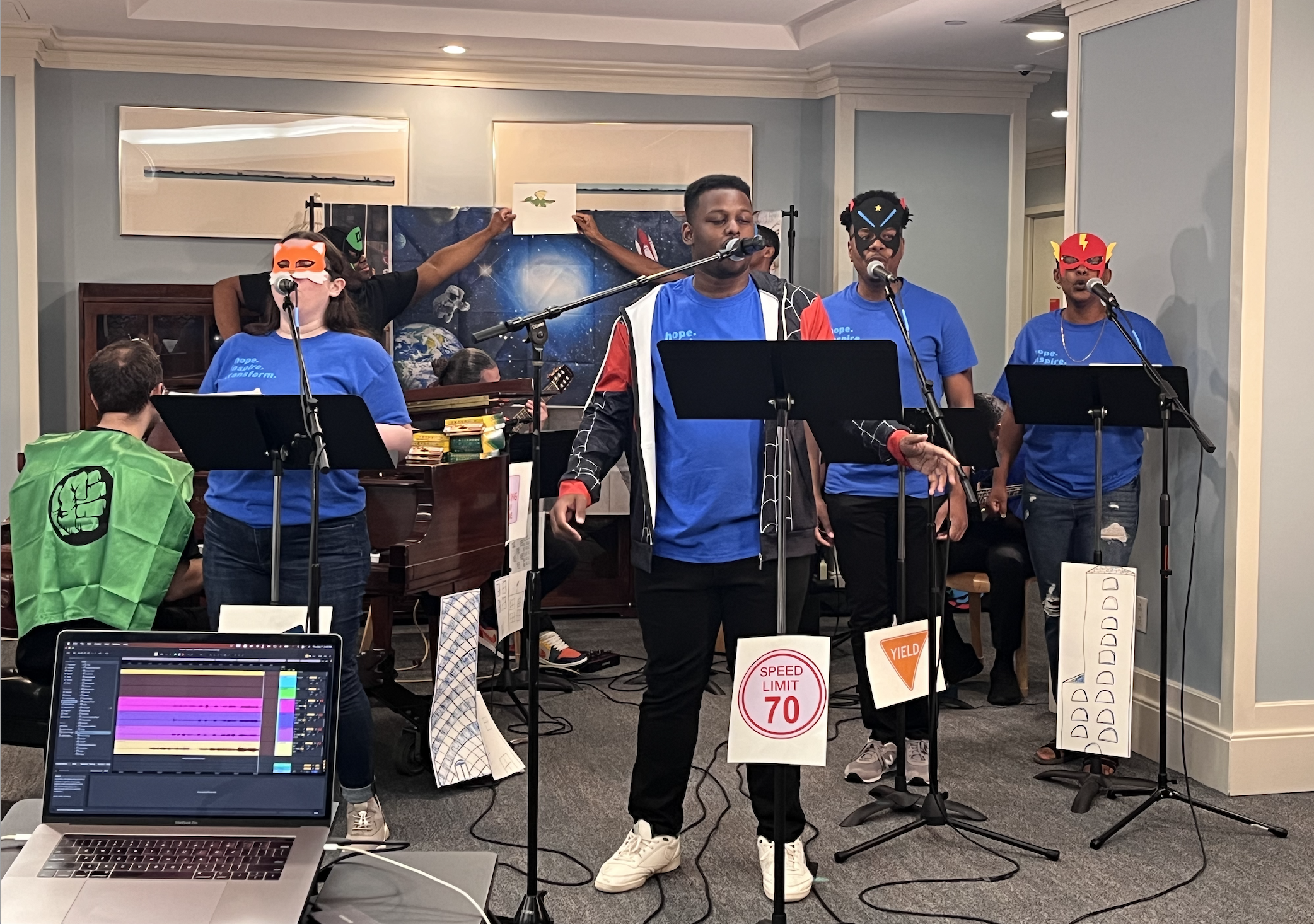
For so many artists, it really took that early creative exploration to get us out of our shells. It was the arts that helped us learn to communicate, that helped us with math. It was the arts that helped us be creative when we were uncomfortable. I want to make sure that these programs are still in schools so we can help our students in those same ways.
Inspired: Can you give us an idea of some of the programs you oversee?
Tasha Michelle Smith: We work with Covenant House, which is a nonprofit that provides a safe haven for youth facing homelessness. With them, we offer a variety of workshops within the arts—acting, spoken word poetry, singing, and dancing—and it allows them to learn who they are and how they express themselves. Even if they don't go into the arts, those social and emotional skills are key, equipping them with newfound confidence as they're learning to rebuild their lives.
And then, with the Ronald McDonald House, we've created a program called “Songs in the Key of Me,” where we pair composers with young people who have cancer and their families, giving them a platform to spend time and create with each other. The children in the Ronald McDonald House get a chance to create a song with their composer, a song that's been specifically tailored to them about the things that they love.
Inspired: It's clear your programming is tailored so intentionally and specifically to the communities you serve.
Tasha Michelle Smith: Absolutely. When you're creating space and time for healing, it's important that you show up to the communities you're serving ready to listen to their authentic needs.
For example, just a few weeks ago we wrapped up this year’s “Songs in the Key of Me” program. At the end of the program, we filmed the music videos that we created to accompany the songs inside the Ronald McDonald House, which gave us a chance for the families to come and watch the video production process. And to see the parents moved to tears because of the song written for their child...to see that joy in their face was indescribable. We can only imagine the things that they go through every day, wanting to protect your child during a really difficult time in their lives. And so to see them with tears of joy rather than of sadness is a really powerful thing to be a part of.
Inspired: That's just so remarkable. How do you create the kind of safe space that’s required when working with vulnerable populations?
Tasha Michelle Smith: The first thing that we do is find out what that community or organization truly needs. We don't want to come in with a template. We don't aim to push our ideas, but instead, we just want to show up and open doors for them. Just because our young people are in a room with us doesn't mean they have to participate in everything that we're doing, we just want to show them that they’re welcome if they're interested in trying it out.
Whenever we work with very sensitive or vulnerable communities, we see that it's really just about showing up for them and showing up consistently. No matter how many young people we're working with, even if it's just one or two, we're still going to create that space where they can come create and explore at their own pace.
In practice, this takes a lot of research and meetings on our end! We want to make sure that we are giving each group what they need, without showing up to their community in an inauthentic way. This means that even though we're creating a program to bring to these organizations, we also take a look at the programs they already have in place. We attend those programs when we can; we get engaged with the community. We care about what gets each community excited, whether that's acting, dance, music, or movies. We don't want to just show up as our own organization; we want to be a part of the community as well.
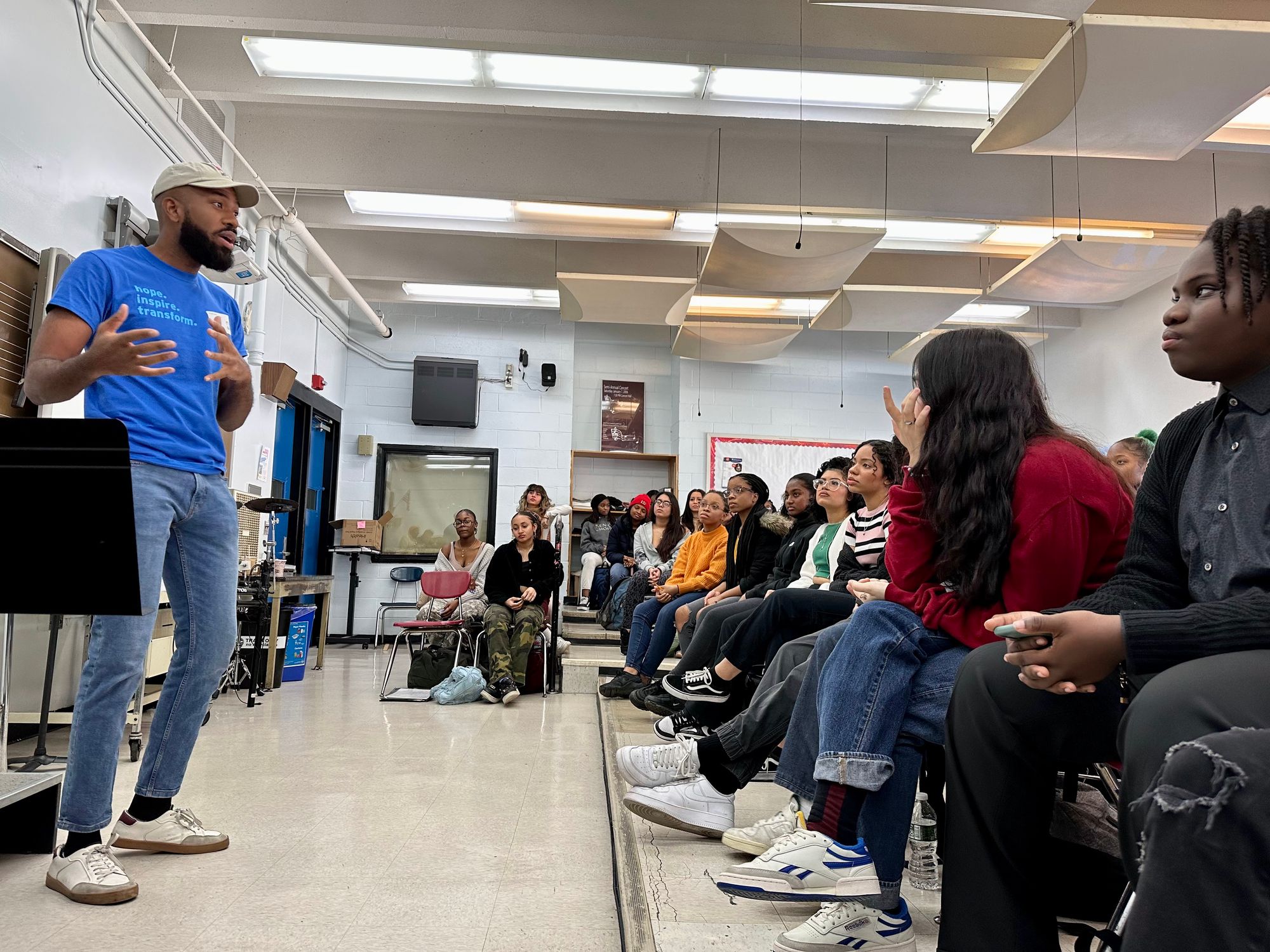
Inspired: In nonprofit work, it's important to measure and quantify making an impact, but the real power often lies in showing up consistently and supporting a community through thick and thin. And often that value is totally unquantifiable! Speaking of showing up, what advice do you have for people who want to make a positive impact in their communities through the arts, but aren't sure where to start?
Tasha Michelle Smith: First, identify where the community naturally goes. Whether that's the library, your local YMCA, or the rec center, figure out what existing organizations are already doing for the community. Then, talk to existing community program directors and ask what they need most. Is there something that you can also bring to the table? Is there a planning committee you can join? Do you have a couple of extra hours to pass out lunches in the summertime, or volunteer as a park safety monitor? Whatever your thing is, wherever your niche is, there's a way for everyone to help.
Inspired: What does the future hold for BIV?
Tasha Michelle Smith: There's so much that we still want to do as we continue to develop programming, but one of the things that's top of mind for us right now is our mentorship program, continuing to teach young people interested in the arts what it means to handle and sustain yourself as an artist when you go out into the real world.
We also make it a priority to provide our mentees with a real network beyond the program. We want them to feel connected to BIV for life. So even as you graduate high school or college and you come to New York and you're working on Broadway, you have a whole organization that you can reach out to and say, "Hey, I need some help. How do I navigate this problem I'm experiencing in this industry?"
Inspired: And lastly, on top of being a gifted and prolific multi-hyphenate performer and working for BIV, you’re a published author! Can you tell me a bit about Saturday My Favorite Day! and Nobody Can Be Me? What inspired you to write these books and what message did you want to share with young readers?
Tasha Michelle Smith: When I wrote Saturday My Favorite Day!, I was really just reflecting on my own childhood. And though everything wasn't perfect, so much of the magic of those early years has stuck with me. Everything was such a big deal! So the book aims to capture that everyday magic of a Saturday, especially for black children. Spending time with your grandparents, your father being the tickle monster, reading stories, and catching fireflies.
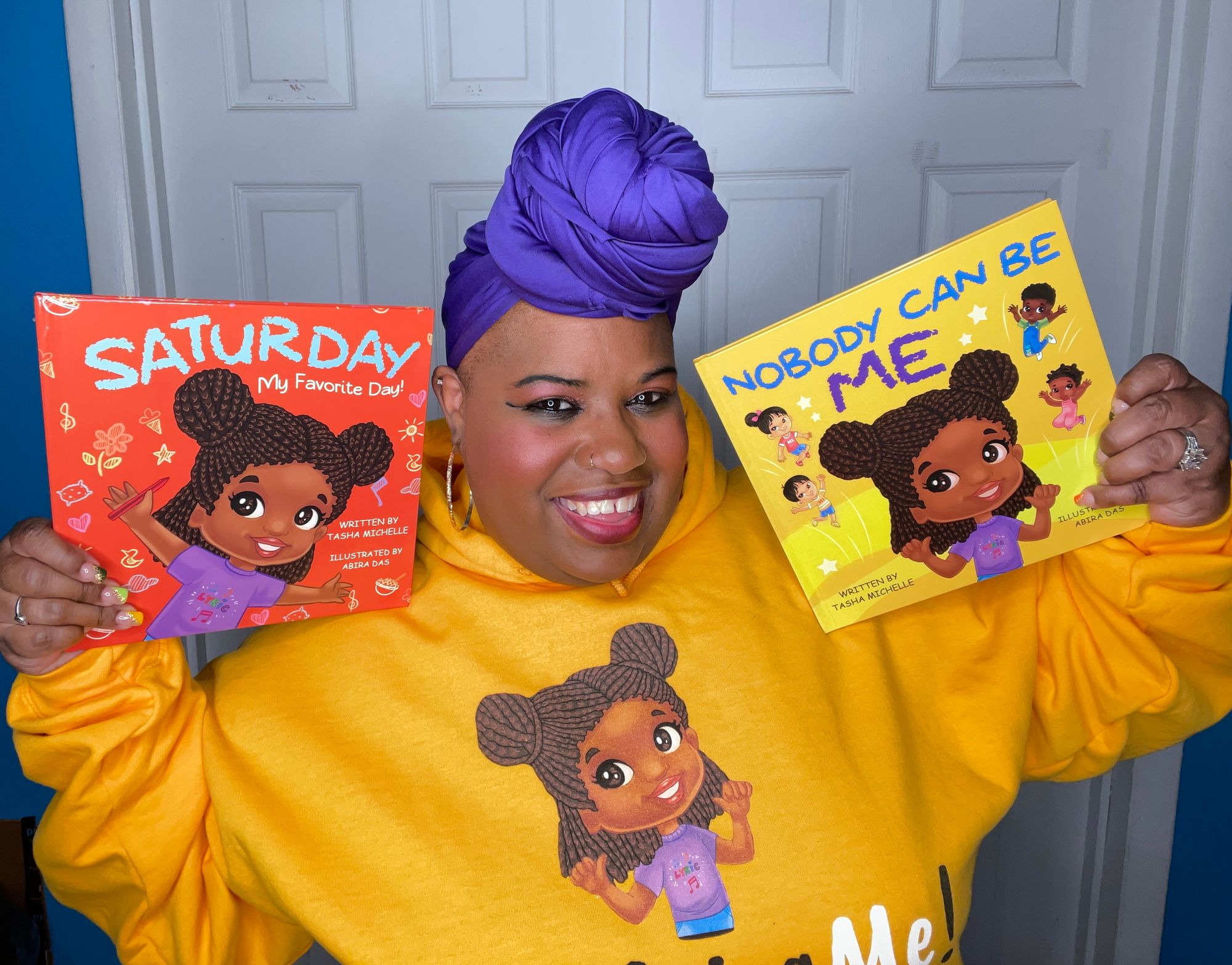
Our children are exposed to so much and they often have to grow up so fast. That's why I continue to write the Lyric series; I want to continue to put books out there for African-American children so that when storybooks are being read in the schools, their stories are represented in the classroom too.
I'm also hoping to continue to normalize the different ways a family can look. People come from a wide range of dynamics and living situations. And it isn't necessarily about having a big deep conversation in the middle of the book, sometimes it's just about demonstrating that diversity in the images within these books.
Inspired: It's so clear that you care deeply about giving back to young people, be that through BIV or with the stories you’re bringing into the world. What a note to end on. Thank you so much for taking the time to chat with me today!


